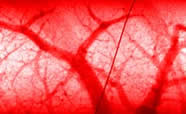Overview
Many laboratories with the Department of Physiology conduct research concerned with the regulation of cardiovascular and respiratory function in both health and disease.
Specific areas of interest include:
- How hormonal, neuronal, and intrinsic processes control the heart
- Understanding the vasculature of the lungs
- Describing calcium regulation of heart rhythms
- Identifying pathogenic mechanisms operating in diseases such as obesity, diabetes, heart failure, hypertension, and cardiac arrhythmia
Cardiovascular and respiratory physiology research techniques
We use a range of whole animal, whole organ, cellular, molecular, and genetic techniques to investigate heart, lung, and blood vessel function.
Researchers in this group have expertise in the following techniques:
- Animal models of disease (eg diabetes, cardiac arrhythmias, myocardial and limb ischemia, obesity, vascular calcification)
- Cardiac haemodynamics (eg echocardiography)
- Cell culture (eg stem cells, cell differentiation)
- Cell signalling (eg phosphorylation, oxidation, inflammation)
- Genetic modulation of the heart (e.g., microRNA, hereditary mutations)
- Histochemistry (eg atherosclerosis plaque assessment, collagen deposition)
- Isolated and innervated heart preparations (eg Langendorff, trabeculae)
- Microangiography
- Protein analysis (eg immunohistochemistry, western blotting)
- Radiotelemetry (eg sympathetic nerve activity, blood pressure)
- Tissue engineering (eg iPSC derived cardiac progenitor cells)

